Must see Italian movies
A listing of some of the best Italian movies ever.
Italian cinema has historically suffered in terms of box office, second always, to France and then to the United States. However, from an artistic point of view, and the critical success of its genres (having received international acclaim over and over again), Italian film is a cultural beast.
Nowadays, Italian cinema is experiencing a Renaissance, with directors like Luca Guadagnino and Paolo Sorrentino restoring it to its former glory.
Here, we have selected the best Italian movies throughout history, across all genres, from international blockbusters to domestic indies, many taking place in the Eternal City that is Rome.
1. Roma Città Aperta (Rome Open City)

Year: 1945
Director: Roberto Rossellini
This film inaugurated a new way of making cinema: Roberto Rossellini, aware of the impossibility of using film studios (uninhabitable or destroyed by bombing), decided to shoot among the ruined streets of Rome, among the rubble of an Italy whose wounds were still bleeding.
He did so with few means, a low budget and minimal equipment, but with a clear idea: to tell a recent page of Italian (and everyone's) history, without falling too far into easy rhetoric.
It relies on two greats: Anna Magnani and Aldo Fabrizi. It takes place during the nine months of the Nazi occupation of Rome, and the German police are on the trail of Engineer Manfredi who is the head of a branch of the Resistance. A timeless monument to neorealism and cinema as a whole.
2. Ladri di Biciclette (The Bicycle Thief)
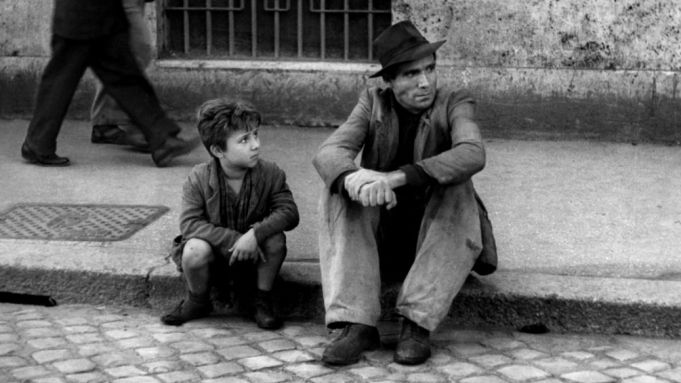
Year: 1948
Director: Vittorio De Sica
Rome, a few years after the end of the Second World War. Antonio Ricci, unemployed, lives in a suburb of the city with his wife Maria, their son Bruno and a newborn daughter. He finally finds a job for which a bicycle is necessary, and which Antonio and Maria manage to redeem from a pawnshop. “Bicycle Thieves” represents, in many ways, the ideal of Italian cinematic neorealism.
Vittorio De Sica’s film possesses all the basic characteristics of the movement: real settings, non-professional actors, and a dramatic story about the harshness of everyday life of the working classes.
3. I Soliti Ignoti (The Usual Suspects)
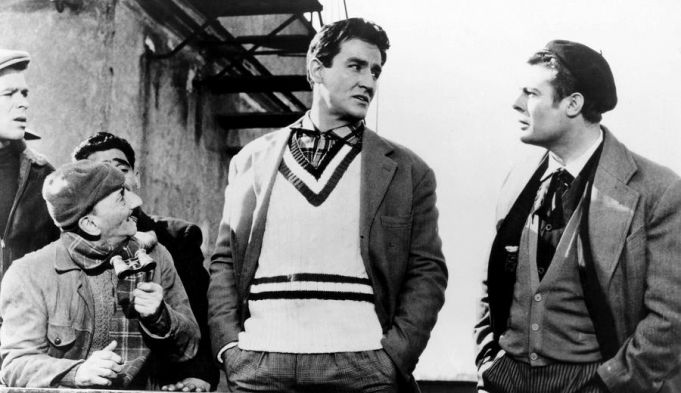
Year: 1958
Director: Mario Monicelli
“I Soliti Ignoti” (1958) by Mario Monicelli acts as a turning point between neorealism and the Italian comedy. It is a comedic masterpiece in which Totò plays the role of Dante Cruciani, a retired burglar who teaches his trade to a group of amateur thieves.
“I Soliti Ignoti “was born as a parody of the American gangster genre and French film noir, but it grew in the hands of its writers to become the first work of a new genre. Gianni Di Venanzo's cinematography, in a vivid black and white, creates a perfect setting in the working-class neighborhoods of Rome in the late 1950s.
4. La Dolce Vita (The Sweet Life)
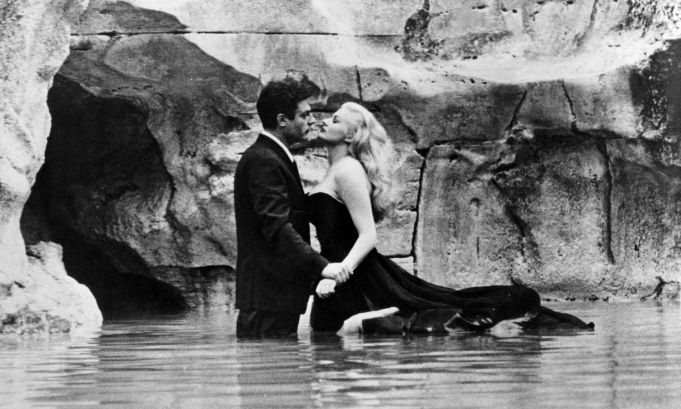
Year: 1960
Director: Federico Fellini
The visual narrative offered by Federico Fellini is unmatched, as is the director's critical gaze. An Italy experiencing an economic boom hides the ghosts of a crisis that is individual and collective at the same time.
When it first came out in theaters it was wildly popular, despite having been called “disgusting” by the Vatican. The word “paparazzi” was coined by Fellini in this film about the lives of the 1960’s elite. Behind a fierce, sinister and sprawling Rome are hidden the anxieties of a paparazzo (Marcello Mastroianni).
The infamous scene of the gorgeous Anita Ekberg wading into the Trevi Fountain as Marcello gazes at her longingly is as sensual as it is demoralizing. Although Fellini was nominated for a best director Oscar, it surprisingly did not win any Acadamy Awards.
5. Divorzio all'italiana (Divorce Italian Style)
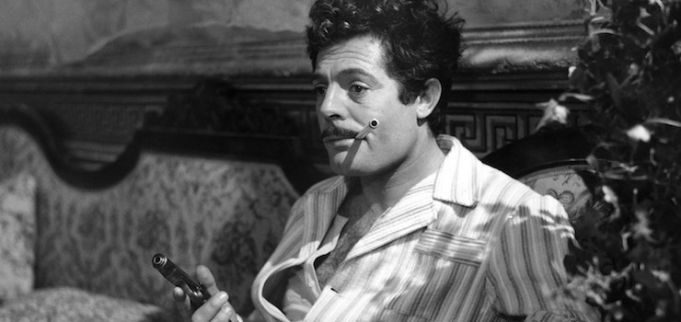
Year: 1961
Director: Pietro Germi
The title of this film gave rise to the expression Commedia all’ Italiana, a highly successful genre of the 1960s and ‘70s. It takes place in an ironic depiction of Sicily, but it is also a fierce satire of two backwards Italian laws of the time: the absence of a law on divorce (which will not arrive until 1970), and, especially, of article 587 of the penal code, which in 1960 still allowed for crimes of honor (killing your wife in cases of adultery).
Marcello Mastroianni plays Fefè, a man who has been married to the nagging Rosalia for twelve long years. Meanwhile, he is in love with his own cousin, the sixteen year old Angela. Italian law does not allow divorce, but there is still the moderately punished crime of honor, for which Fefè hatches a plan.
6. Il Sorpasso (Overtaking )
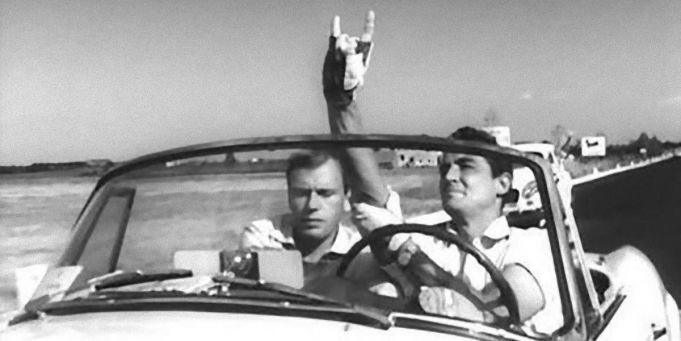
Year: 1962
Director: Dino Risi
In a sweltering, deserted Rome during the peak of summer holidays, a forty-year-old blowhard (Vittorio Gassman) makes the acquaintance of a shy university student (Jean-Louis Trintignant). Out of their first encounter comes a road trip of twists and turns that ends in the seaside town of Castiglioncello.
“Il Sorpasso” is a masterpiece: a brilliant screenplay, an atypical structure for the time, a road movie with a modern rhythm - that still works perfectly, with a surprising mixture of humor, satire and drama.
Dino Risi gave actor Vittorio Gassman a memorable role that captures a particular Italian stereotype: the idler who honks wildly, who parks illegally, who is mischievous and scandalous. In a post- war Italy, life is faced at breakneck speed, with the careless attitude of those who believe that a blow of the horn is enough to overcome pestering obstacles.
7. 8 1/2
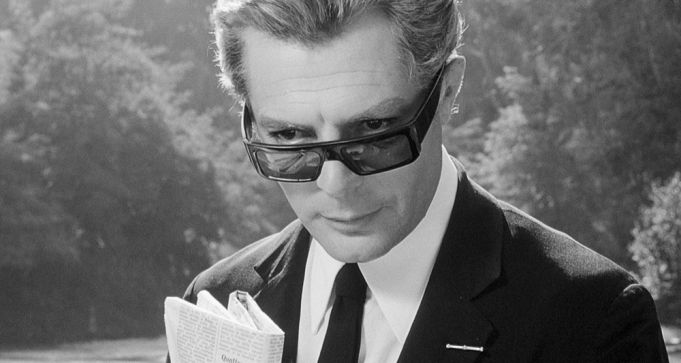
Year: 1963
Director: Federico Fellini
Cast: Marcello Mastroianni, Claudia Cardinale, Anouk Aimée
“8½” is a precious film (it won two Oscars), where the camera moves slowly and persuasively, supported by lucid black and white photography, and places the spectator in a state of hypnosis, which, in fact, is the self-induced hypnosis of the main character himself.
Fellini pursued, in making this film, a new stylistic line, different from that of his previous films and which could be called magical, but which has been rightly called “Fellini-like”, because it is fresh and inimitable, absolutely unparalleled.
“8½” is a complex film, visually fascinating, not completely understandable, but absolutely dazzling and disturbing. It is a sort of summation of Fellini's concept of cinema, the masterpiece of an artistic life.
8. Teorema (Theorem)
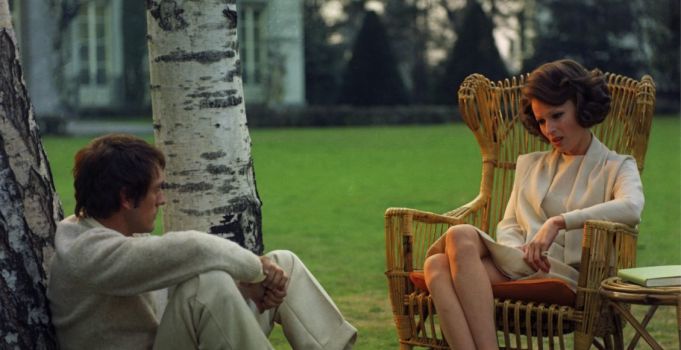
Year: 1968
Director: Pier Paolo Pasolini
Academics and critics historically don’t have much passion for Pasolini films. However, the intent of Pasolini's most perturbing and visionary work still fascinates. In a family of the Milanese upper middle class, announced by a telegram, a mysterious young man arrives. He has sexual relations with all members of the family - father, mother, daughter, son and maid - who begin to behave in an unusual and bizarre way.
9. Il Buono, il Brutto, il Cattivo (The Good, the Bad and the Ugly)
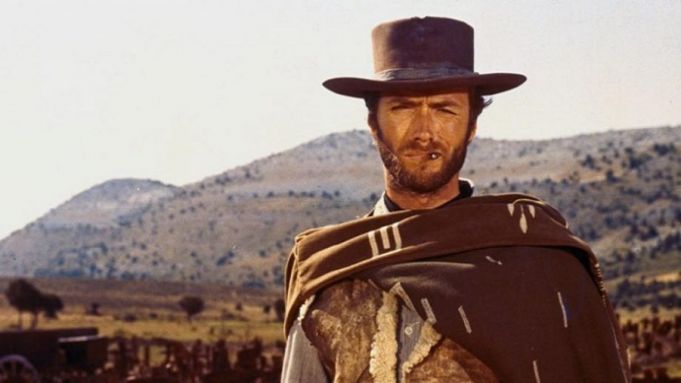
Year: 1966
Director: Sergio Leone
This film is for anyone who wants to see a well- written story, acted well, set to excellent music and shot even better. “The Good, the Bad, and the Ugly” is one of the best examples of a "Spaghetti Western.”
Which is a term used to describe Italian “westerns” made in the sixties and seventies, often with a low budget, almost always shot in Europe and almost always with protagonists who were anything but heroic.
“The Good, the Bad and the Ugly”, however, was shot with a dream budget (the two previous films Sergio Leone did had done very well) and Leone became one of the few non-American directors who was appreciated for their westerns - the most American genre of all and, according to some critics, the most American "cultural product" ever.
10. Il Conformista (The Conformist)
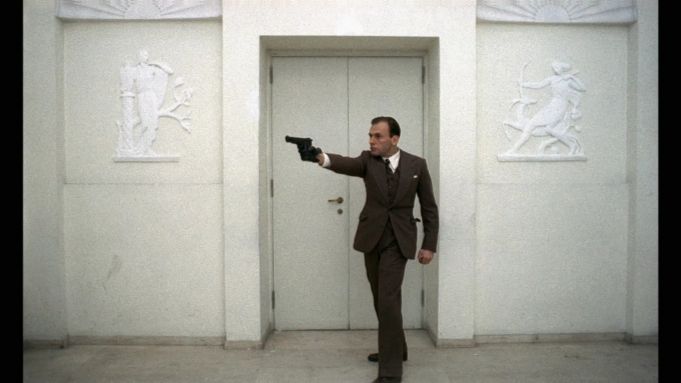
Year: 1970
Director: Bernardo Bertolucci
In the fascist Rome of 1938, Marcello Clerici, professor of philosophy and betrothed to Giulia, receives a mission on behalf of the secret police founded in 1927 under the regime of fascist dictator Benito Mussolini: to kill his old professor, a political dissident living in Paris.
Based on the novel of the same name by Italian author Alberto Moravia, the film marks the beginning of the series of masterpieces by the great Bertolucci. Divided between Mussolini’s gray Rome and a bright and existentialist Paris, it is an ode to nonconformity, freedom of love, and being oneself.
It was nominated for a Golden Globe for best foreign film and for an Oscar for best adapted screenplay.
11. Una Breve Vacanza (A Brief Vacation)
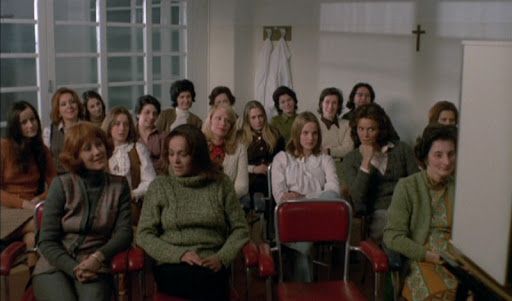
Year: 1973
Director: Vittorio De Sica
Clara and Franco are two immigrants from Calabria who live in Milan. The woman, who works in a factory, falls ill and risks serious consequences. Vittorio De Sica’s film envisions the working world in a gray, gloomy, suffering Milan, while other parts of the story take place in a stark white mental hospital.
The asylum represents a sort of purgatory, where people wait for the verdict of the doctor, and Clara, in all this, sees herself as a woman for the first time and free from the assembly line that is life. De Sica manages to talk about feelings and life as few do, and, in part, this film leaves an aftertaste of late neorealism.
12. Suspiria
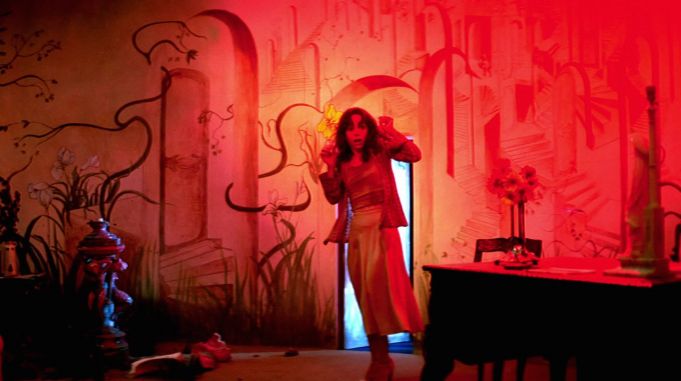
Year: 1977
Director: Dario Argento
Although Dario Argento is famous in Italy above all for his masterpiece "Profondo Rosso", back in 1977 he achieved international fame thanks to his first horror film, “Suspiria”. A tale of dark mysteries and bloody murders linked to a ballet school, "Suspiria" represents the apex of the acclaimed director.
It is one of the most successful horror films in the history of cinema, as few others have succeeded in transmitting to the spectator what "Suspiria" does: anguish, mystery, bewilderment, anxiety, fear… it does it all.
13. Nuovo Cinema Paradiso (New Cinema Paradise)
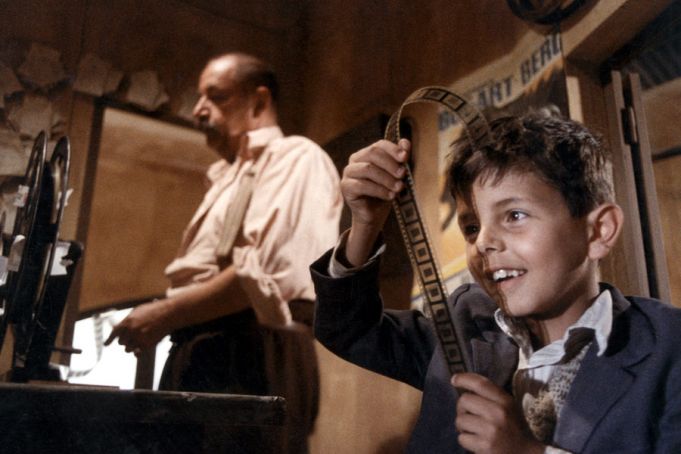
Year: 1988
Director: Giuseppe Tornatore
"Nuovo Cinema Paradiso" is one of those films you must watch at least once in your life. It follows Salvatore Di Vita, an orphaned child, and his friendship with Alfredo, the old film projectionist at the cinema.
But, it’s really the story of post- World War II Sicily, with its war widows, immigrants, it’s local schools, and parish priests who censor the scenes of risqué movies. A magnificent film, accompanied by the music of maestro Ennio Morricone, that covers 20 years of history in an instant.
You fall in love with Italy, its characters, its places, and long for a bygone era. No wonder it snagged the Oscar for Best Foreign Film.
14. Mediterraneo (The Mediterranean)
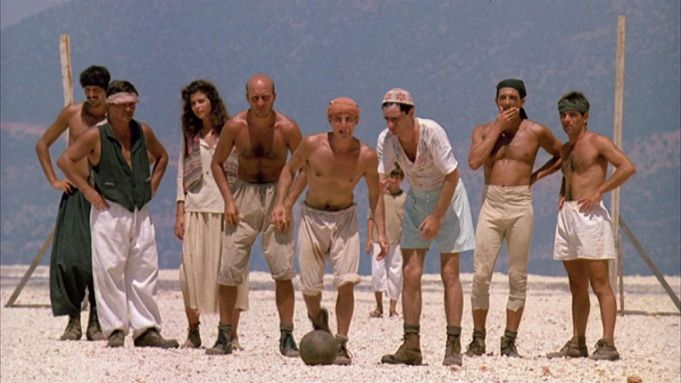
Year: 1991
Director: Gabriele Salvatores
In the middle of the Second World War, a small group of Italian soldiers is sent on a "mission" to a sunny Greek island. This group of drifters, including deserters and clumsy mountain men called to arms, are the protagonists of events as absurd as they are wonderful.
The great Italian director Salvatores succeeds in painting a unique portrait of life with the natural sounds and colors that the small island offers. It won an Oscar for Best Foreign Film in 1992.
15. La Vita è Bella (Life is Beautiful)

Year: 1997
Director: Roberto Benigni
"Roberto!" Sophia Loren's happy cry still resounds as she presented the Best Actor award at the Oscars: in the envelope was the name of Roberto Benigni. He had just won the statuette for Best Foreign Film for La Vita è Bella.
In an explosion of joy, Benigni climbed onto the backs of the chairs and to the podium, almost collapsing onto Steven Spielberg. It was the year of Saving Private Ryan, for which Spielberg won as best director, but in which Shakespeare in Love surprised everyone by winning as best film.
In the Best Actor category, Benigni was up against Tom Hanks (for Saving Private Ryan), Edward Norton (American History X), Ian McKellen (Gods and Monsters) and Nick Nolte (Affliction). The then Pope John Paul II, who saw the film during a private screening at the Vatican, judged it as one of his "five favorite films of all time”.
This film on the Holocaust - Benigni’s "fable about Nazi concentration camps”- is a tragicomedy that takes everyone by surprise.
16. I Cento Passi (One Hundred Steps)
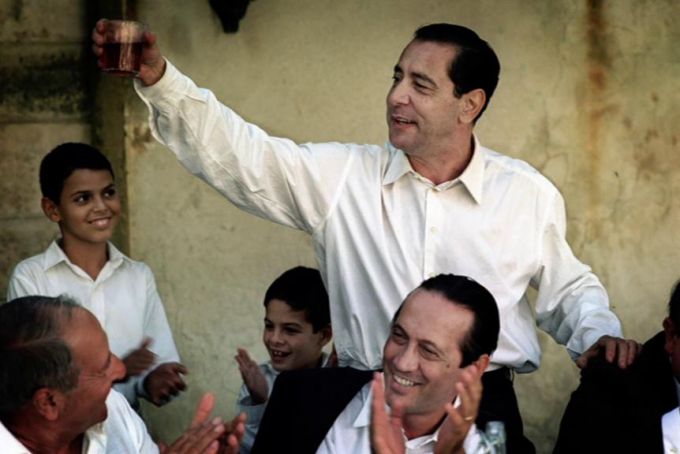
Year: 2000
Director: Marco Tullio Giordana
In Cinisi, a small Sicilian village squeezed between rocks and the sea, near the airport quite useful for drug trafficking, one hundred steps separate the home of Peppino Impastato from that of Tano Badalamenti, the local mafia boss.
Peppino, a curious child in 1968, rebels, as young people do, against his father. But, in Sicily, the rebellion becomes a challenge to the ruling mafia. The director, Giordana, put it best: "This is not a film about the Mafia. It is rather a film about a group of boys who dared to look at the sky and challenge the world with the illusion of changing it.
It is a film about the good things that the young people of '68 were able to do, about their utopias, about their courage. If today Sicily has changed, and no one can pretend that the Mafia does not exist, much is owed to the example of people like Peppino, to their imagination, their pain, their cheerful disobedience.
17. La stanza del figlio (The Son’s Room)
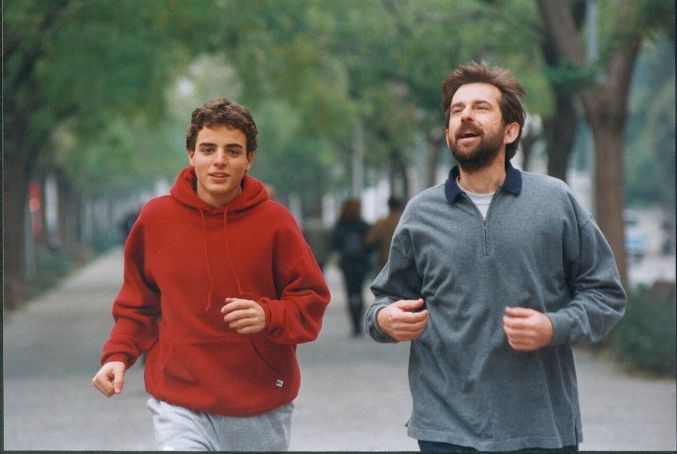
Year: 2001
Director: Nanni Moretti
The shrill noise of a coffin being closed, the leafing through of a mortuary catalog, the silent gazes of the main characters who struggle to find each other after the absence of the one who has disappeared, all make this film from Nanni Moretti a painful and touching story of loss and finding comfort.
18. Pranzo di Ferragosto (Mid- August Lunch)
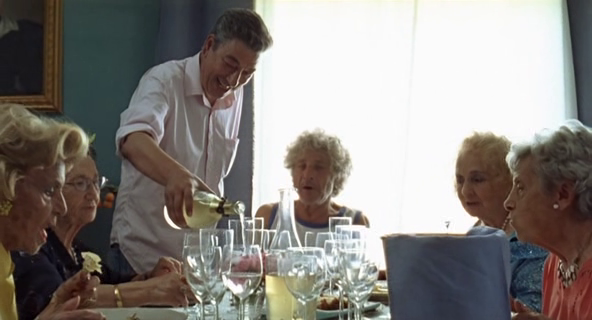
Year: 2008
Director: Gianni Di Gregorio
The Mamma is always the mamma. “Pranzo di Ferragosto” is a story told by a son with his best years behind him, who, though ’fond' of wine, manages to accept his mother’s aging, and work his life around it.
Gifted with levity in acting and in directing, Di Gregorio performs a small miracle of synergy between the four 'diabolical' old ladies and man’s intelligence under stress. A film to be enjoyed - like a long lunch, excuse the pun - made with a small budget (500,000 euros) and an original setting (the director's real house), but which gave life to a little gem of Italian cinema. Good for everyone interested in a slice of life story about Rome.
19. La Grande Bellezza (The Great Beauty)
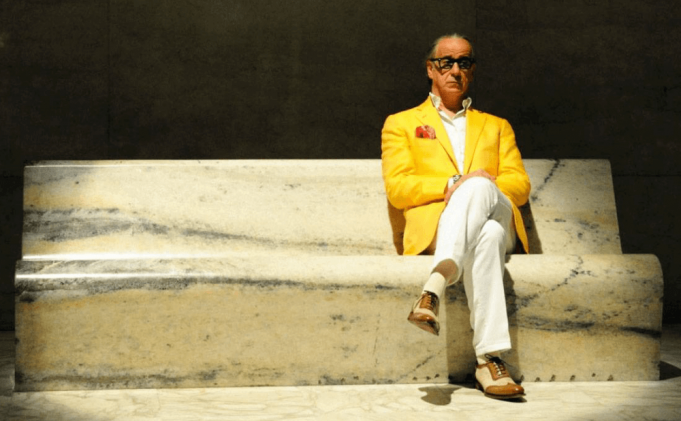
Year: 2013
Director: Paolo Sorrentino
Rome reveals itself, spied on by the main character who is in search of a beauty that is lost on most inhabitants: dawn on the Tiber, the deserted night, bright corners photographed by Japanese tourists, or secret gardens populated by nuns.
“La Grande Bellezza” is a continuous daze, guided by Jep and his irony, but also by his painful detachment from the squalor of life around him and the memory of his first love, over forty years ago. Sure, if you're a story purist, you may be disappointed.
But you cannot deny the remarkable merits such as the cinematography, the choice of music, the frenetic editing of some sequences (the first party on the terrace of Jep is extraordinary) and the directing. Here, Sorrentino proves to be a visionary, capable of reinventing Italian cinema.
20. Dogman
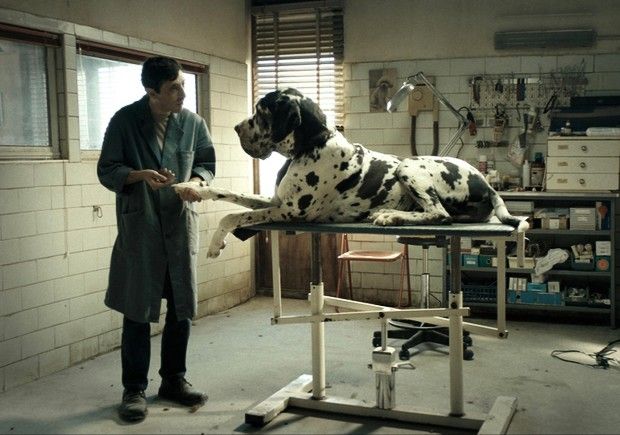
Year: 2018
Director: Matteo Garrone
A masterpiece. Matteo Garrone gives us a wonderful work that makes the viewer feel anger, compassion and desire for revenge all at the same time.
Pasolini perhaps could have written it, having once described the setting where the film takes place : "I remember one day passing through the Mandrione in my car with two of my friends from Bologna, distressed at the sight, there they were, in front of their hovels, scuffling in the filthy mud, some little boys, between two and four or five years old.”
It’s impossible not to empathize with the main character, Marcello (brilliantly played by unknown actor Marcello Fonte). Garrone takes the viewer’s hand, forcing us to live Marcello’s metamorphosis, up to the magnificent and poignant final sequence. “Dogman” strikes as a dark, but true story of Italy - an Italy that has always existed but is too- often ignored.

















